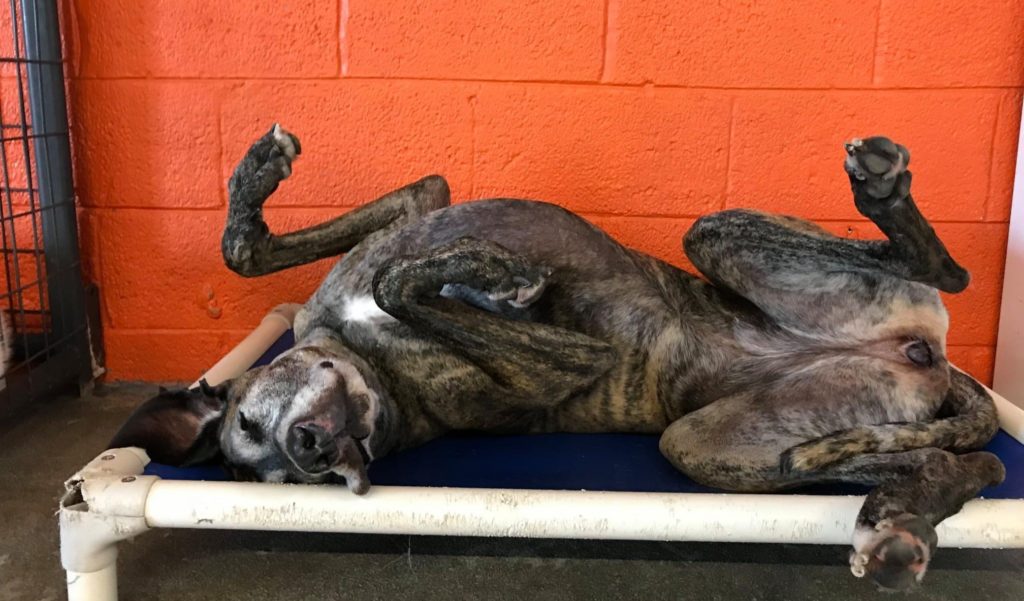The Top 10 Things to Look For After Dog Boarding

Written by Jennifer Giesbrecht
Thanks for boarding your dog with Canine to Five! We offer Metro Detroit’s finest dog boarding services in Detroit, Ferndale, and Commerce Township, MI. Your furry friend is going to have a great time with us and we’ll take great care of them! When you return to pick up your pup, we want you to be informed of all the things we look for, watch for, and are aware of with social boarding stays. If we note any of the following, we will inform you.
1. Stress and compromised immune systems
Just like with people, dogs experience stress of varying levels in new situations. Stress can cause the body’s immune system to drop, which can increase their susceptibility to social viruses.
If your dog is new to boarding, does so infrequently, doesn’t attend daycare regularly, is young, or doesn’t interact with many dogs, then your pup’s immune system will be more susceptible and less able to fight off viruses. Being exposed to viruses is also how your dog’s immune system is strengthened and, just like people, increased exposure to the world and interaction with others improves their immune system in dogs with regular immune systems.
2. GI Upset and Gastroenteritis
Stress can cause your dog to have GI upset, which can cause diarrhea that, depending on the length of stay, can present during their stay or after once they get home. GI upset (gastroenteritis) can present with blood in the diarrhea. Dogs have blood vessels in their rectums that people don’t, and the frequent stool movements can irritate the end of the intestine and cause blood to come out with the diarrhea. If we note diarrhea, we will inform you.
In more extreme cases, gastroenteritis can present with vomiting. In instances with vomiting and diarrhea, antibiotics are usually required to quickly clear up any symptoms. Vets aren’t sure what causes gastroenteritis, but in a boarding situation, the stress of being away from home would be a factor. We take all health instances very seriously and we will notify you of any vomiting or other GI issues.
3. Eating less
Dogs will very often eat less when away from home. This is generally a response to being in a new place. If they are experiencing any GI upset, then eating less may also be of benefit to them as their system won’t be processing as much food. We track your dog’s consumption of food. If a dog doesn’t eat well for three meals in a row, we’ll use the methods you approve of at check-in to help encourage your dog to eat.
4. Nicks, scratches, or scrapes
We never let play escalate to an intense level or allow any dog to play with an unwilling partner. Our Pack Leaders are trained in body language and behavior and ensure play remains at an enjoyable, positive level. However, even with that, dogs are dogs with 42 teeth each, and through regular play, nicks, small cuts, or scratches might happen from playing with others. We allow dogs to play their own style as long as their play partner matches their style and play remains positive and enjoyable for the play partners. This may include running, jumping, or other roughhousing. Activity always holds the possibility of bruises, cuts, nicks, or other injuries (just as when we were kids at camp).
Long nails from a playmate can also result in scratches or abrasions on those dogs who love to play big. Long nails can also split or break off if a dog likes to run or play a lot. Keeping nails trim and tidy not only helps your pup’s feet feel better but also plays a role in keeping them and others safe.
Despite all precautions, training, supervision, and interaction, there is no way to eliminate entirely the possibility that a scuffle may happen between two dogs and a dog bite happen. Even a quick two second altercation can create a scrape, scratch, or tooth puncture. If your dog does have a scuffle with another—however minor—we will always inform you.
5. Hoarseness
If your dog loves to bark, they might lose their voice during an overnight stay. Our Pack Leaders are quick to address and comfort barking during the day, but sometimes our more anxious friends can have a hard time settling in at night and will go home sounding hoarse.
6. Blisters or sore muscles
Dogs in daycare and boarding play much more than they do at home, and the same thing can happen to them as to a person who hasn’t been to the gym or played a sport in a long time—they might get sore muscles. We also have found that, due to the increased activity, their own nails can rub their toes and create blisters, just as our feet with new shoes. We watch for all signs of this and will inform you of anything we note.
Once you get home with your dog, they may cash out and sleep more than normal. Your dog has been busy with friends and in a new place. They have likely slept less than their regular lives (which for dogs can include up to 18 hours of sleep) and played more, and now it’s time to re-charge.
7. Nose rub
The skin on the tops of muzzles are very soft, and sniffing beneath fences or exploring along the perimeter of our play areas can cause rub spots on your dog’s nose and can scrape off the fur and leave a red rub mark. If we note that your dog has any rub marks, we will clean it and let you know.
8. Licking
Once the fun of the day is complete and dogs are resting in their suites for night, some dogs cope with the change in environment and with being away from their people by licking— usually a spot on a leg. This is a natural soothing action in response to a change.
Sometimes all it takes is one night for a dog to lick a spot to create a small sore, and it doesn’t take long for that small sore to increase in size. If we make note of this behavior, we will inform you.
9. Social viruses
Social viruses are impossible for us to prevent. Just as colds spread from one child to another in school, colds can spread from one dog to another in daycare, boarding, or dog parks. Bordetella—commonly called canine or kennel cough—does happen, regardless of any preventive measures or vaccinations had by our guests. It is impossible for us to prevent canine cough. When we are notified of a guest who has come down with canine cough, we send out notices to owners.
The good news is canine cough is the equivalent of the cold in humans, and the treatment is the same: rest. Very few cases require a vet visit.
The Bordetella vaccine is non-sterile, like the flu vaccine, in it doesn’t offer complete protection and vaccinated dogs can still catch it. The Bordetella vaccine is also a live vaccine, and dogs that receive the vaccination can exhibit symptoms of canine cough in the days following the vaccine and also shed the virus for days or weeks after receiving it, potentially spreading it to others. Which is why at Canine to Five we do what we can to minimize potential spread of the virus by requiring a minimum of 48 hours from its administration before a dog visits our facility.
We do everything in our ability to combat it through excellent airflow at our facility (the best combatant against it) and stringent daily sanitization. If we learn of a guest having canine cough, we will communicate to clients whose dogs could potentially have been exposed.
10. Eye infections
Just like with kids in schools, minor bacterial or viral infections (pink eye or conjunctivitis) can be spread from one dog to another in a social setting, just as it can with children at school. If we note any signs of eye infection, we will notify you and ask if you’d like us to administer antibiotic drops (polysporin drops). Fleas and lice Creepy crawlies can hitch a ride in on guests. From April to October we do require a flea, tick and lice treatment, and we recommend it throughout the year. If we encounter a guest that has brought in any creepy crawlies, we will inform you and ask if you’d like us to administer a topical treatment of your choice.
If you have any questions about any health aspect of your dog’s overnight boarding stay with us, please don’t hesitate to be in touch! Canine To Five offers attended overnight dog boarding in Detroit, Ferndale, and Commerce Township, MI so your dog does not have to be alone overnight.
- Your pup must be at least 12 weeks old
- They must have their DHPP, Lepto, Bordetella, and Rabies vaccines (Rabies by 18 weeks old for puppies)
- Puppies over 9 months old must be spayed/neutered to participate in our pack-style environment; Unaltered dogs may continue to join us for Private Play




